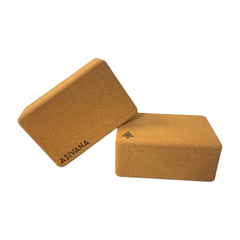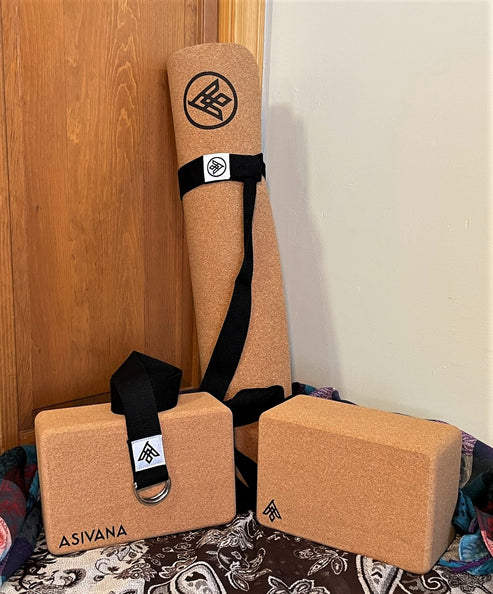What is Trauma-Informed Yoga?
Jack UtermoehlShare
Trauma-informed yoga is a therapeutic approach to yoga designed with a deep sensitivity to the emotional, psychological, and physical needs of individuals who have experienced trauma.
This style of yoga focuses on safety, empowerment, and choice, making the practice accessible, inclusive, and supportive for healing and self-regulation.
Unlike traditional yoga classes that may emphasize alignment, instruction, or physical intensity, trauma-informed yoga prioritizes agency over perfection. Teachers are trained to avoid triggering language or touch and instead offer invitational cues and multiple options for how to engage in a practice.
The goal is to create a space where individuals can reconnect with their bodies at their own pace and on their own terms.
Origins of Trauma-Informed Yoga
Trauma-informed yoga emerged from the growing understanding of how trauma affects the nervous system, body, and sense of self.
Drawing on trauma research from psychology and neuroscience—especially the work of experts such as Dr. Bessel van der Kolk, Dr. Stephen Porges, and Peter Levine—this style integrates somatic awareness, mindfulness, and nervous system regulation.
Yoga became a recognized modality for trauma recovery through programs like the Trauma Center Trauma-Sensitive Yoga (TCTSY), developed by the Justice Resource Institute. It is also widely used in therapeutic settings such as recovery centers, prisons, and mental health clinics.
Yoga Essentials for Your Practice
Support your yoga journey with high-quality, sustainable props designed for comfort and stability.

Crafted from eco-friendly cork for durability and a comfortable practice.
$24
Shop Now
Includes everything you need to get started: a mat, blocks, and a yoga strap.
$120
Shop NowTrauma-Informed Yoga Practice
Practices are guided by principles that reduce the potential for re-traumatization and support nervous system regulation.
Sessions are usually slower-paced, gentle, and non-directive, allowing space for participants to choose how and whether to engage in each part of the practice.
Core elements often include grounding techniques, body scans, gentle movement, breath awareness, and opportunities for rest. There is no pressure to perform or conform to any standard of physical ability.
Core Principles
- Safety: Creating a physically and emotionally safe environment
- Choice: Providing options and respecting individual autonomy
- Empowerment: Encouraging students to connect with their own inner authority
- Body Awareness: Cultivating presence and reconnecting with the body
- Non-Judgment: Holding space without expectations or corrections
Common Poses: Seated Forward Fold (Paschimottanasana), Supported Bridge Pose (Setu Bandha Sarvangasana), Legs Up the Wall (Viparita Karani), Child’s Pose (Balasana), Seated Mountain (Sukhasana)
Trauma-Informed Yoga Suitability
Experience Level: Beginner-Friendly (Suitable for All)
Physical Demand: Gentle Movement
Mind-Body Engagement: Primarily Meditative
Adaptability: Highly Adaptable
Focus Area: Nervous System Regulation, Emotional Safety, and Reconnection
Notes on Trauma-Informed Yoga
This style supports recovery from PTSD, complex trauma, anxiety, addiction, and dissociation.
It’s often used alongside psychotherapy and somatic therapies. Trauma-informed yoga helps participants restore a sense of control, reconnect with bodily sensations in a safe way, and begin the process of healing from within.
Practitioners are encouraged to listen to their body, take breaks as needed, and honor their internal experience rather than push through discomfort. This approach fosters trust, self-awareness, and emotional resilience.
Similar Styles
Therapeutic Yoga, Restorative Yoga, Yin Yoga, Chair Yoga
Equipment
Required: Yoga Mat
Nice to Have: Bolster, Yoga Blanket, Yoga Blocks
Optional: Yoga Strap, Eye Pillow
References
The Body Keeps the Score by Bessel van der Kolk
Overcoming Trauma through Yoga: Reclaiming Your Body by David Emerson and Elizabeth Hopper
Trauma-Informed and Trauma-Responsive Yoga Teaching by Catherine Cook-Cottone & Joanne Spence
Trauma-Informed Yoga: A Toolbox for Therapists by Joanne Spence
Trauma-Informed Yoga Affirmation Card Deck Cards by Zahabiyah A. Yamasaki & Evelyn Rosario Andry






